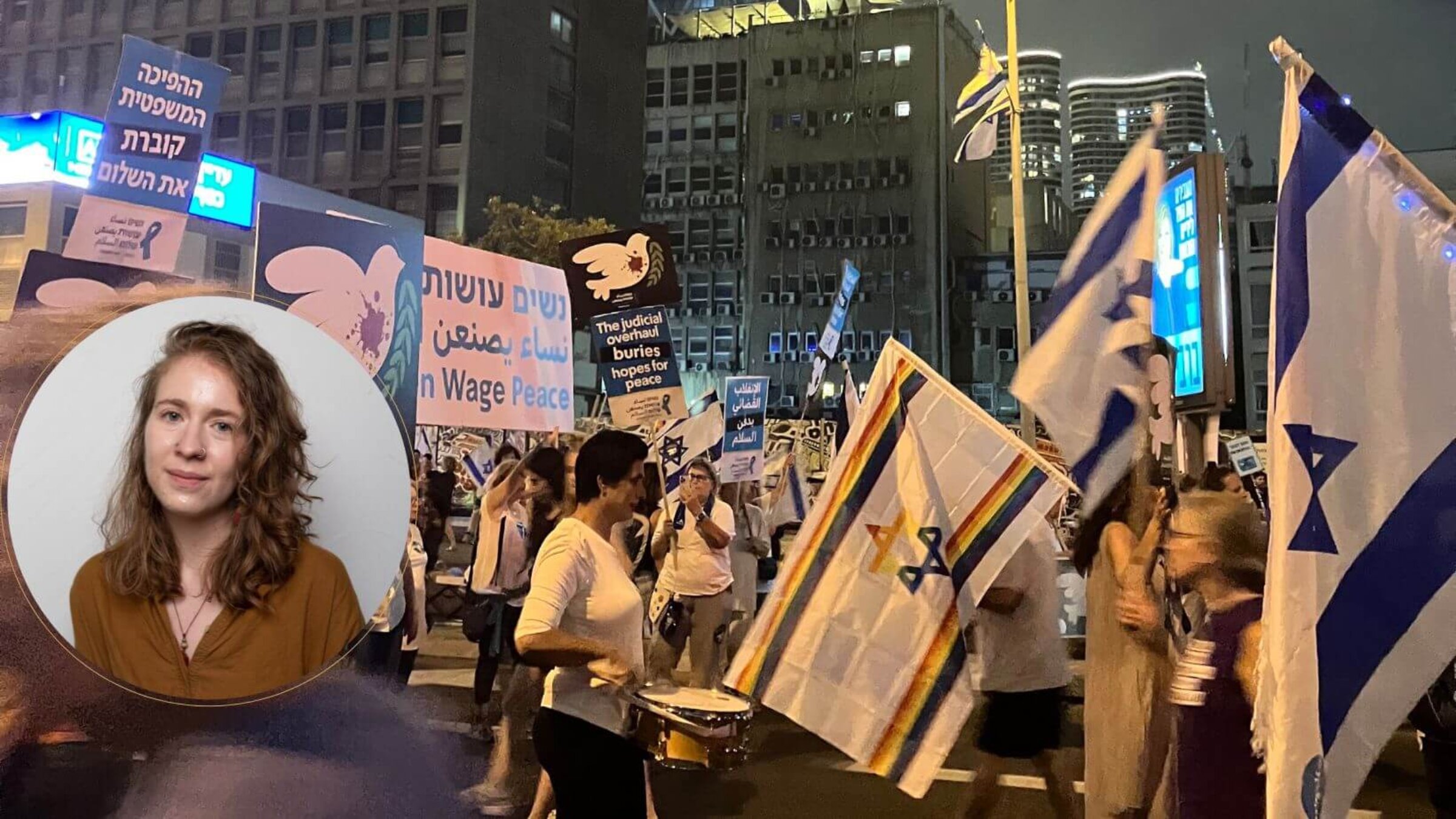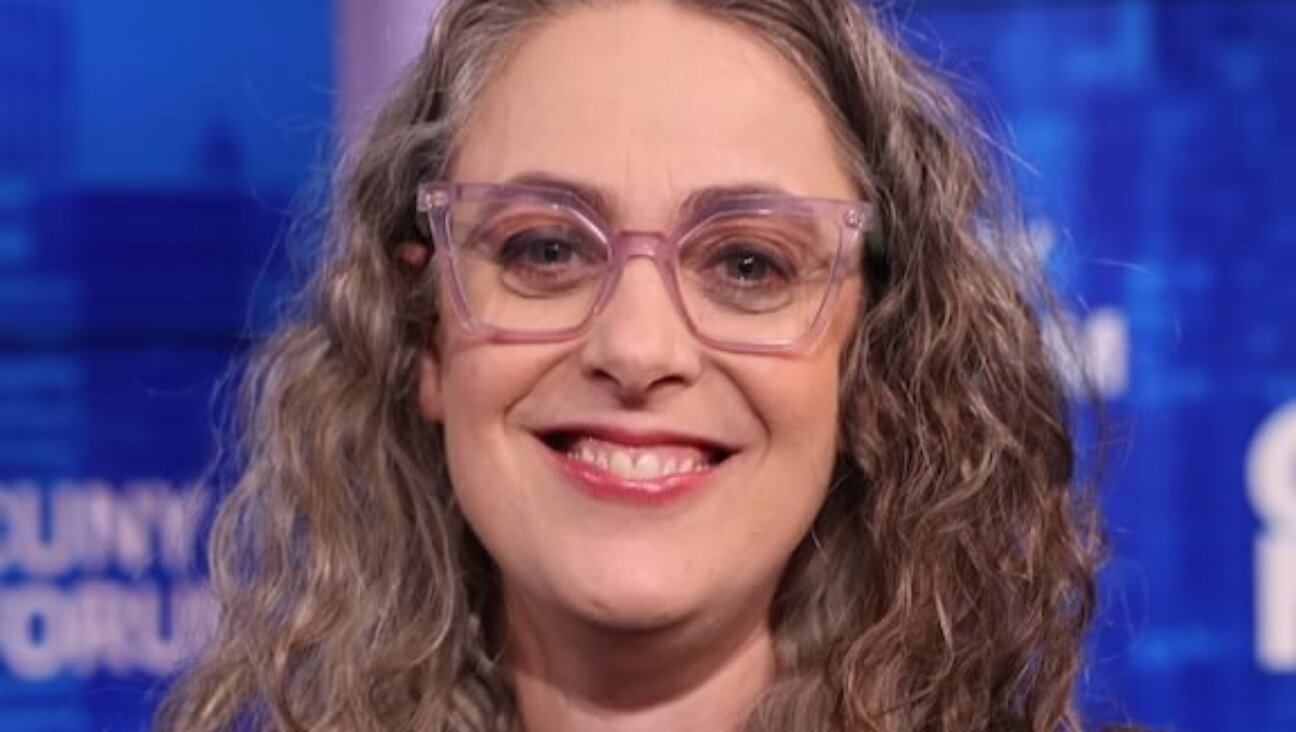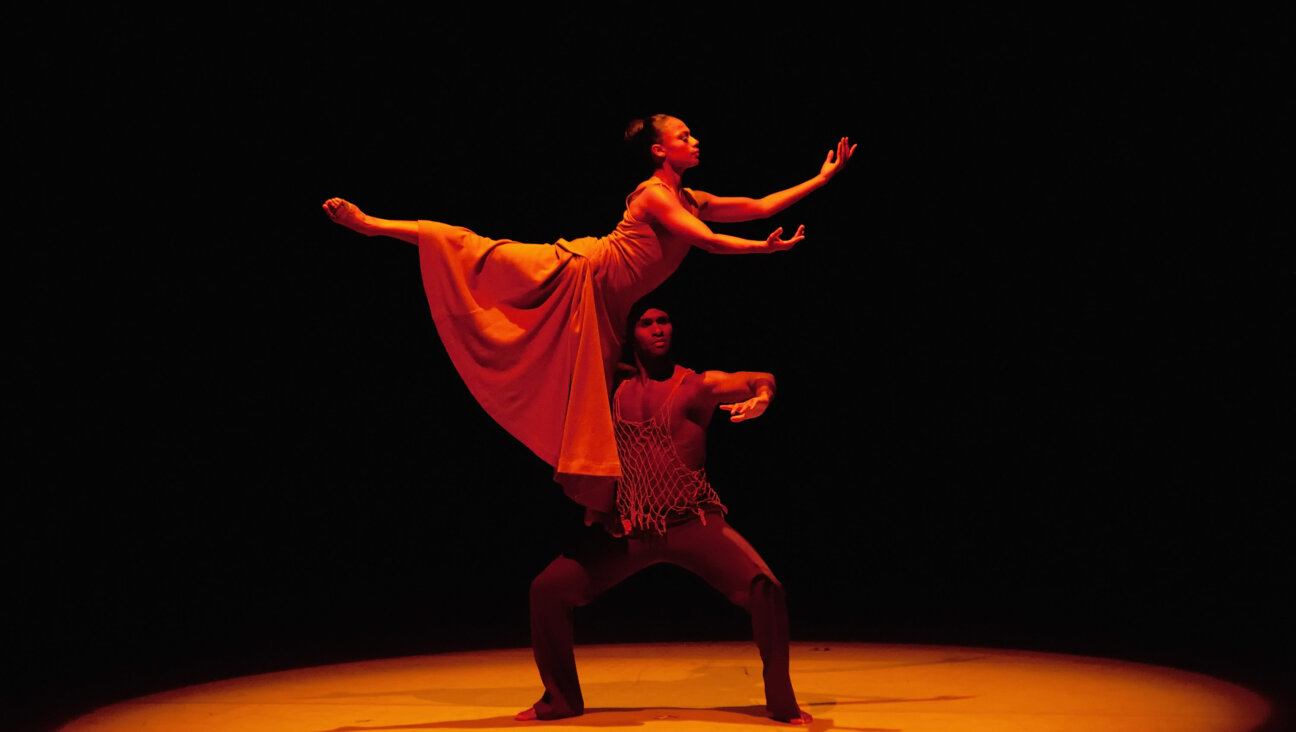On the stages, there was always an Arab speaker. In the Tel Aviv one, it was very noticeable that when the Arab woman was speaking, the cheers were less loud and consistent. She would give pauses for everyone to, you know, scream and blow their little noisemakers, which works for everyone else.
Like everyone shouts, “Busha, busha,” which is Hebrew for “Shame, shame.” But then this Arab woman was trying to teach everyone the Arab word for shame. And she was like, “Let’s do a call and response, you’ll reply in Arabic” — and, like, weak, weak response.
In the Tel Aviv one, the anti-occupation block also felt much less separate. But the big speakers don’t want to talk about it on stage because it’s too controversial. They’re afraid of driving off the more centrist people by talking about it.
But in the streets they’re becoming more interwoven, talking about the occupation is less forbidden. Even the Yom Kippur War veterans I was talking to — one of them was saying the country is supposed to be equal, we’re all supposed to be equal in a democracy. And I want to make clear to you that includes Arabs.
I think a lot of people haven’t really grappled with this question of, OK, if we have a truly representative democracy, and that means including the Arabs, what does it mean to be a Jewish state? That feels like something that people are still a little bit afraid to look at.
What else surprised you?
MF: I was really shocked by how institutional the protests in Tel Aviv felt. You expect it to feel a little anarchist, a little of-the-moment, but there was so much infrastructure.
There were screens set up for blocks and blocks around Democracy Square, as it has been rechristened, that were like at a sports game. They would show the chants in time so that everyone knew when to say De-mo-cra-tia, de-mo-cra-tia or Busha, busha. It would flash it like you were at a baseball game.
And they were set up for blocks around. There’s a whole little economy that sprung up where people are selling flowers and noisemakers and T-shirts and water bottles and lemonade. And soft pretzels.
In Tel Aviv, people felt pretty serious on the street, there was a lot less smiling and greeting people. In Jerusalem it was like a lot of like, “Hey, how are you doing? I haven’t seen you in so long.” Hugs, hugs, kiss, kiss, like everyone’s like having a great time, there’s little kids underfoot.
Do you have a sense of when the arc may have changed, both regarding the Palestinians and about it becoming less about policy, about the judicial-overhaul plan specifically, versus a general moral campaign?
Was it in July, when the Knesset passed the first part of that plan, stripping the Supreme Court of its power to review legislation?
Yes. People were flooding the streets, blocking the highways. And they sent out police with water cannons and cavalry were galloping into the crowds and pushing people with horses. And people were just, like: “We didn’t think that this could happen to us, basically, we’re Jewish citizens of the state.”
People were like, “Oh, it’s not just that we’re fighting this law.” Suddenly we feel like we are fighting to be treated as citizens of the democracy and not be cracked down on in this way that feels really authoritarian and violent.
I think that really galvanized people to think about what the fight’s about in a different way, what their country is, what the government’s doing, in a way that didn’t feel like it was a question of law but felt like it was a question of just: How do we live life here?
OK, so get out your crystal ball. What do you think is going to happen next?
I asked people a bunch of times: What does success look like? Nobody’s saying exactly, “Until Netanyahu is not in power, this government dissolves, and there’s new elections.” Nobody’s saying “until the occupation’s over.” The goals feel pretty unclear.
I think there’s a lot of swirling rage. They just know what they don’t want to happen, but they don’t really know what they do want to happen.
A bunch of my friends who tend towards being a little more cynical said the protests are cool but they’re not really going to do anything. What will do something is that all these reservists are boycotting, all of these doctors are threatening to move abroad, that can actually hurt the country. So I think that is a possible arc.
Otherwise, I think it’s a little bit like what we’ve seen in the U.S. We had big Black Lives Matter protests, and it hasn’t really made a huge difference in the way that our policing works. There was a period of some DEI committees, and then, mostly, status quo remained. I think shifting the tide of institutions is really hard.
I’m so glad we sent Mira to do this important work. If you want to see more on-the-ground reporting in the Forward, please make a donation to support it today; we are a nonprofit funded by you, our readers. Thank you for making our journalism possible.
























